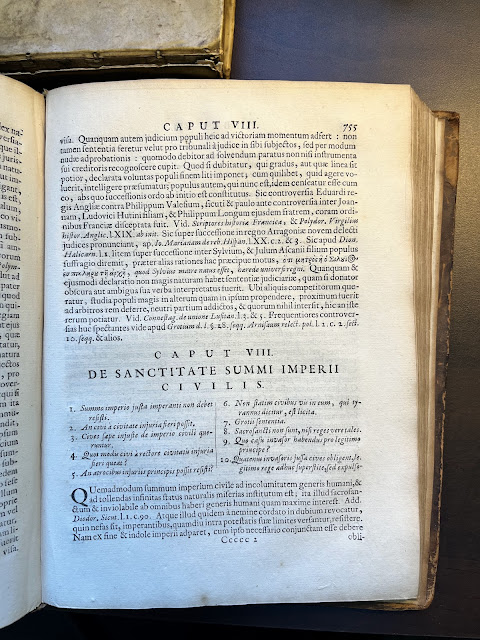Sacrosanctity
This term has been unusually busy, and I haven't been able to update this blog as often as I'd like. But I can at least make a quick update: I was commissioned by Harvard University Press to write a new book on sovereignty. One aspect of this theme, which has been endlessly fascinating for me up to this point in my academic career, has been the theological aspect of it, how sovereignty confers an immunizing power on those who hold and wield it. I've wanted to explore some of the theological aspects of sovereign immunity for some time, but wild claims of immunity - even 'absolute immunity' - have made this project almost imperative for me.
This has sometimes been described in terms of 'sacrosanctity,' the ancient roots of which can be traced in the lex sacrata (which Giorgio Agamben made famous for modern readers in Homo Sacer) and the tribunician potestas sacrosancta of the Roman plebeian tribunes. One of the most concrete places where this feature of sovereignty remains visible today as an ossified artifact is in the law governing sovereign immunity. But the history of this doctrine remains a bit of a mystery. Lauterpacht once suggested some possible sources, at least for the branch of public international law. Common law traces it to the medieval doctrine, 'The King can do no wrong' (actually, a bad translation: Rex non potest peccare - more accurately, The King cannot sin, more aligned with the doctrine of 'impeccability'). There is a more compelling history, I think, that will require a study into these creative mixtures and hybrids of law and theology in past legal systems.
Where to begin? I've been preoccupied with this question and spending a lot of time with Pufendorf. But I think one candidate for a point of entry is this chapter, De Jure Naturae VII, 8.
In the coming months, I'll be looking into some of the sources for Pufendorf's theory of sacrosanctity and its later uses in the modern natural law theory of sovereign immunity. Not quite sure yet where it will lead me though, but this is the exciting stage of the project.


